An overstimulated nervous system is one of the most common causes of chronic complaints. Irritable bowel syndrome, exhaustion, hormonal imbalances, insomnia and migraines are frequent consequences. They are often rooted in an imbalance of the Vata principle - the bio-element that in Ayurveda stands for movement, nervous activity and mental processes. We show you how you can regulate your nervous system with European Ayurveda and get back into Vata balance.
Calm the nervous system: Ayurveda against permanent stress
It's no secret that constant stress makes you ill. Your nervous system is the key to finding inner peace. At the Ayurveda Resort Sonnhofour experts work daily with people whose autonomic nervous system is out of balance.
Dr. Alaettin Sinop, a conventional physician with an integrative approach, explains:
"The nervous system is like the pacemaker for the entire organism. If we calm it with natural remedies, many ailments begin to heal - physically and emotionally."
What is the nervous system? Sympathetic vs. parasympathetic nervous system and what makes Ayurveda different
The nervous system is an important system in the body that is responsible for processing stimuli. It controls the activity of our organs and muscles and transmits information within the body. It is also responsible for memory, emotions and thinking.


It is primarily located in the brain, with the hypothalamus playing a central role in controlling the nervous system. It is therefore important to strengthen the hypothalamus in order to cope better with stressful situations. Stress is primarily linked to the autonomic nervous system, which controls breathing, digestion and metabolism.
The autonomic nervous system consists of two poles, the sympathetic and parasympathetic nervous systems. They are responsible for opposing areas:
- Sympathetic nervous system: activity, stress, performance
- Parasympathetic nervous system: rest, regeneration, healing
European Ayurveda® helps to consciously strengthen the parasympathetic nervous system - through nutrition, rhythm, breath and awareness.
Ayurvedic physician Sharma Gaurav sees this as a central bridge between traditional medicine and modern neuroscience:
"Our therapies are based on knowledge that is thousands of years old - and they have a measurable effect on neurotransmitters, hormone axes and cell metabolism."
In Ayurveda, the control of movement, breathing, circulation and the nervous system is assigned to the bioenergy(dosha) Vata. When Vata is in balance, we find inner peace. However, if the doshas are imbalanced, this becomes noticeable through stress and stress-related complaints such as high blood pressure, digestive problems, migraines or sleep disorders.
Regulating the nervous system: 4 exercises and rituals in European Ayurveda®
As a holistic approach to health, European Ayurveda® provides comprehensive tips to strengthen the nervous system. It focuses on the entire lifestyle and helps to regulate the nervous system in the long term. Routines are the most important tool for Vata balance. Here are 4 tips for regulating your nervous system with Ayurveda.
1. vata-soothing diet - food as a nerve tonic
Nutrition directly influences the conduction of stimuli in the body. The following applies to nervous weakness: warm, oily, sweet and nourishing foods calm your Vata dosha and reduce stress.


Our Ayurvedic physician Deepa Naik gives the following Ayurvedic nutritional recommendations from her practice:
- Root vegetables, ghee, saffron rice, almonds, warm soups
- Ayurvedic herbs such as ashwagandha, Brahmi and shatavari
- No raw food, no coffee, no sugar - they irritate the nervous system
A special Vata spice or Vata tea will also help you to balance your Vata Dosha and regulate your nervous system.
In these fast-moving times, it is also important for body and mind to pause for breath in order to arrive in the here and now. This effectively calms the nervous system and allows you to enjoy a moment of inner peace.
Fixed smartphone times with as little social media as possible are particularly important. Especially when eating, it is best to concentrate fully on the moment and avoid distractions from your cell phone or TV. Multitasking also causes inner restlessness and can weaken your nervous system in the long term.
2. routines & rhythm - stability through regularity
A stable daily rhythm reduces neuronal overexcitation. To regulate the nervous system, Ayurveda recommends fixed routines that accompany you throughout the day. This starts when you get up and ends when you go to sleep.


Recommended rituals are not complicated at all, but can also include the following simple tips :
- Eat and sleep at the same time
- Ayurvedic morning routine with oil pulling and warm water
- Ayurvedic evening routine with foot bath with lavender oil and Abhyanga self-massage
Dr. Sinop:
"These little routines are not wellness gimmicks - they stabilize the hypothalamic-pituitary-adrenal axis."
3. regulate the nervous system with breathing exercises: Pranayama as a direct nerve brake
Breathing controls the autonomic nervous system and you can use it to reduce stress particularly quickly. Just 5 minutes a day has a measurable effect on heart rate variability, blood pressure and resting pulse rate.


Try these breathing exercises (pranayama) from European Ayurveda®, for example:
- Nadi Shodhana (alternate breathing): centering
- Bhramari (bee humming): anxiety-relieving
- Sama Vritti (even breath): stabilizing
Nadi Shodhana is also known as alternate breathing and has a centering effect. Find your inner center by always gently closing one nostril with your fingers and breathing in and out through the other. Change nostrils after each breathing cycle.
The pranayama technique Bhramari is also known as bee humming and is anxiety-relieving. You breathe in in a relaxed manner and create a humming sound when you breathe out. The resulting vibrations calm the autonomic nervous system.
The third breathing exercise is Sama Vritti, also known as even breathing or square breathing. It consists of the four equally long elements of inhaling, holding the breath, exhaling and holding the breath.
These exercises are particularly effective if you do them in the fresh air. In the evening, they can also help you to fall asleep faster and sleep better.


Discover the European Ayurveda® Inner Peace Capsules now
The Inner Peace capsules are a high-quality dietary supplement with valuable plant extracts. They contribute to the normal function of the nervous system, the psyche, and the metabolism of neurotransmitters. Discover them now in the European Ayurveda® online shop!
4. mind detox & emotional support
Many symptoms begin in the mind - and are also resolved there. At European Ayurveda®, experienced coaches accompany you on a mental level alongside doctors. Mind detox helps to identify stress triggers and resolve them sustainably.


Elisabeth Naschberger Mauracher, integrative mind coach and pioneer of European Ayurveda®, guides you through inner processes of letting go, reorientation and awareness:
"Mental detoxification means letting go of the noise in your head - and following your inner voice again. That's where real regeneration happens."
You can try out the following impulses as an introduction to your emotional freedom :
- Ask yourself: What can I do today that is good for me?
- Write down everything that is bothering you on a piece of paper
- Make a morning routine that brings you joy
- Build in ME Time times
- Take time for a short breathing exercise every day
- Connect with your heart and ask yourself: What would love do today?
Conclusion
An irritable nervous system is not a condition you have to live with. With the right diet, breathing practice, daily rhythm and emotional relief, European Ayurveda® shows you how to regain your strength in the long term.
At the Ayurveda Resort Sonnhof, our experienced doctors - Dr. Alaettin Sinop, Sharma Gaurav, Deepa Naik - and coach Elisabeth Naschberger Mauracher accompany you with medical expertise, heart and consciousness work. Discover all the products, rituals and recommendations for strengthening the nerves in the European Ayurveda® Shop.


More energy in everyday life: how to increase your daily energy levels
If your everyday life challenges you, this can result in tiredness and fatigue. In this article, you can find out why this is and what you can do to combat persistent tiredness.






